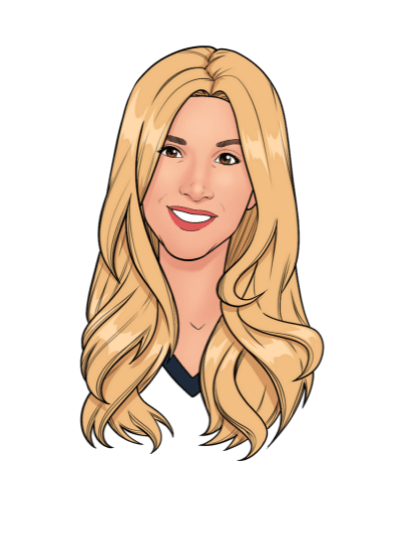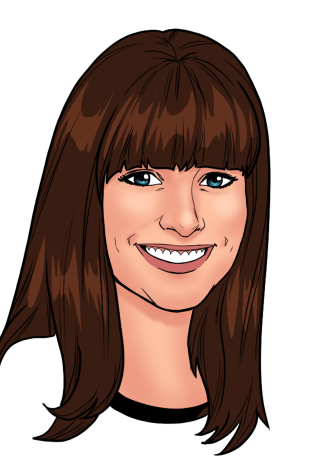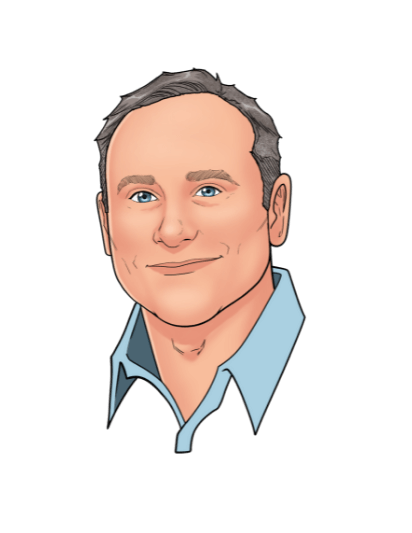
98
Episode 98 36 mins
Overcoming Imposter Syndrome: How to Use Emotional Regulation and Waterfall Habits to Be a More Conscious Leader
Jen Hope, Business and Leadership Coach
00:00
00:00

We don't know how to manage when we're in pain or discomfort. We tough it out or get judgmental or shameful about a very human experience of struggle. Shifting ourselves to a more tender, more gentle, kinder, compassionate style can help us move through. Yeah, that's not what people always want to hear. Because it's not easy, right?
In this episode
Is imposter syndrome being oversimplified in the workplace?
Jen Hope specializes in coaching startup leaders and teams to maximize professional and personal outcomes.
On episode 98, Jen dives into interacting with extroverts and introverts in the workplace and how to lean into their communication style.
We talked about emotional regulation, how managers can tap into their leadership potential, and why imposter syndrome is sometimes oversimplified at work.
Jen also speaks about habitual thinking, re-labelling our experiences and how to navigate through burnout by implementing waterfall habits.
Tune in to hear all about Jen’s leadership journey and the lessons learned along the way!
Like this episode? Be sure to leave a ⭐️⭐️⭐️⭐️⭐️ review and share the podcast with your colleagues.
04:17
Communicating as an extrovert
08:20
Emotional regulation
12:20
Overcoming imposter syndrome
16:18
Habitual thinking
18:15
5,4,3,2,1 countdown
22:15
Relabelling our experiences
24:30
Committing to self-care
28:10
Signs of burnout
30:45
Waterfall habits
Resources
- Learn about The Leadership Circle Profile
- Schedule a call with Jen
- Read the book Burnout
Transcript
Aydin Mirzaee (Fellow.app) 00:36
Jen, welcome to the show.
Jen Hope 02:32
Thank you so much.
Aydin Mirzaee (Fellow.app) 02:34
Yeah, it’s very nice to have you on. I know you have a pretty extensive career working with a lot of brands that I think people would recognize the likes of DocuSign, Oracle Qualtrics. And you’ve been doing this as more of a business coach. But before we get into a lot of the experiences and learnings from that avenue, I wanted to see if we could get you to rewind and talk about some of the early leadership and management mistakes that maybe you made when you first started leading teams, you remember some of those?
Jen Hope 03:05
Oh, yeah, that’s why I have this job. Now. Because of those I made plenty of leadership mistakes. I think one of the things that I saw early in my leadership, I was working for an organization that was growing, we grew in the time that I worked there from 30 to 130. And really noticed that I had a lot of bias around my own behavioral and communication preferences, and believed those really fully to be right, in wanting to be more extroverted and having a pretty verbose communication style, and not making space for folks on my team who were more introverted, who preferred less words and more time to think and to process that was really early on. And from there, I think I didn’t fully understand what leadership was and didn’t understand the differences between managing work and managing people until I was already in the role.
Aydin Mirzaee (Fellow.app) 04:02
That makes a lot of sense. Can we dive into the communication aspects? So I take it that you’re pretty extroverted and maybe like to communicate a lot? What was the key learning there? And how did you maybe change the way that you approach communicating with people?
Jen Hope 04:17
Yeah, it wasn’t till much later, I really started to understand the way that we as extroverts are reinforced. So I did something called a DISC profile, and really helps us understand behavior, communication preferences, and to get more information about how high index on that high influence and the way that others could react to it. I want to lean out from this trait that I saw really reinforced by in leadership around me and could really start to make sense of if somebody is leaning out and they have a more skeptical approach that I can lean in to their style I can lean in to somebody having a more objective less even Emotional or there’s the ASIC approach, and that I might be pushing folks off with mine.
Aydin Mirzaee (Fellow.app) 05:05
Right? And so very practically, like if we were to give an example of what you might do in a situation working with someone that is a more introverted, what is a way that maybe you now interact that maybe you wouldn’t have when first starting out?
Jen Hope 05:21
Oh, great questions. So starting a meeting with way less of a social context. So going in and saying, how’s your weekend? For others who may be wanting to jump straight to the objective of the meeting, really taking some of the social aspect out of the conversation? If others are, that’s not their preference, right? We may not want to talk about our dog or cat or our kid or recent vacation, but getting straight to the agenda instead of building that type of camaraderie versus small talk.
Aydin Mirzaee (Fellow.app) 05:50
Oh, that’s interesting that you would say that I feel like I start pretty much every meeting with a How was your weekend? Or some sort of icebreaker type content? And now you’re making me wonder, maybe I’ve been doing it wrong. But so how do you figure that out? Like, is it just, I mean, maybe you you listen to the way that people respond to your questions. And maybe you can kind of get their tone, and figure out if that’s the sort of thing that they want to talk about. Maybe they don’t want to talk about it that day, or you make some assumptions, I guess you do things and you make mistakes. And then you course, correct, right?
Jen Hope 06:22
Yeah, I mean, part of that is Yeah, figuring it out, and and others, it can be really helpful to know the folks on your team, their behavioral preferences. So looking at some team disc assessments, right? Do we get to know the folks around us and their behavioral preferences, and I look at someone who I’m sitting down with, I can know, if I have this luxury of knowing their DISC profile, and they’re sitting in front of me, and they have the below line preference about influence, I’m gonna get straight to it right from sitting across the table from someone who’s higher on dominance. I know that for two minutes behind already, and we got to get go and write their urgency. So it’s really that can be really helpful tool to have as a leader or as a teammate to know who I’m sitting across from.
Aydin Mirzaee (Fellow.app) 07:05
Yeah, I think that makes a lot of sense. And I suppose like, in the absence of that, we can always just ask, do you prefer to jump into the agenda? Or are you okay, doing a little bit of chit chat in advance? I think like asking never hurts. Never. Right. Yeah. So that’s super interesting. And so, and then you became a business coach. So how did you decide to make the shift? Or do you remember the series of things that led you to make that transition?
Jen Hope 07:32
I remember some of the bumps of that transition for sure. When I told my parents that I was making the transition to business ownership. But no, certainly I remember, I was working as a VP in a startup, and started this business as a side hustle, really seeing, especially at that point, working more so with small business owners than startups and scaling organizations that seeing this gap in really understanding ourselves and how we show up our in our world, how our development really affects our business context. And there was an entry point for me, and that I had been there and made a lot of mistakes and felt like I could really both empathize and help others see some of the ways that they could accelerate, and then that I could bring them along this personal development journey.
Aydin Mirzaee (Fellow.app) 08:18
Given that before this, you were also a startup and experienced like a fast growing environment. One of the things for a lot of startup leaders is of course, they just see a lot every day. So there’s a lot of everyone’s wearing many hats, there’s a lot of things going well, and then not well, and it’s this emotional roller coaster. One of the things that you also talked about is emotional regulation. So I’d love for you to maybe talk about what that means for you and how you work with leaders on that.
Jen Hope 08:48
Yeah, in this context, I borrow from a framework that is grounded in Dialectical Behavioral Therapy DBT. And DBT uses a framework where they have two overlapping circles. And on one side we have our emotion mind. And on the other we have what they call reasonable mind or very logic based mind. And that in the middle, we have something called wise mind where we’re making decisions from a place of honoring both sides. And for any of us we have one place where we by default end up spending more time and what I really like to help folks do is come to a place where we sit somewhere in the middle and find the tools that help us get more regularly back to that place right like my favorite peloton, instructor or one of my favorite peloton. Instructors uses the the idea of an emotional lap, right so you’re in between a really tough workout and you’re taking an emotional lap and I tried to look at it that way. Right? Like put the weights down, shake it out, take a lap around your mat, come back and ready to try again. And it’s that it’s those tools that we can have in our pocket. Be it walking be it meditation, be it my For eating, if that’s the thing that that really helps you get in touch with your senses, those things that we can do to get back to that place of wise mind.
Aydin Mirzaee (Fellow.app) 10:09
And so how do you, I guess, like detect this? So if you were going to for advice for everybody who’s listening? So how do you know when you need to do one of these things?
Jen Hope 10:20
Your heart rate tuning into your body, right? Have we started to sweat? Are we leading in can you find ourselves holding our breath is our mind to a point where it’s not doing its best thinking we can dependent on the person and dependent on the consciousness they have about their mind and body? It can be a couple, you know, it can be a brain that’s overthinking or very, very busy. Or it can be a body that sending us the signals that my limbs blown, essentially.
Aydin Mirzaee (Fellow.app) 10:49
Yeah, and this is also super important, because you know, part of it is we’re making decisions throughout the day. And it’s almost like you need to tune into where you’re at mentally. And generally, depending on what’s going on in your head. Are you in the best possible shape to make important decisions? And if you’re not, maybe you do need to do some of these things to get yourself back into the state, but also know not to make important decisions like that when you’re feeling that way.
Jen Hope 11:17
Absolutely. Absolutely. And, Ken, how do we get back to that state? Do we defer to the next day? Do we defer to another conversation? Yeah,
Aydin Mirzaee (Fellow.app) 11:26
it’s interesting. Like, I think, if I remember correctly, Jeff Bezos has this process where he takes all like the most important decisions that he needs to make. And he does that in the very early hours of the morning, or like the first thing during work. And then after a certain time in the afternoon, he just will not make decisions like that, because he knows that he’s not in his absolute best decision making state. And so people practice this all the time. And I think it’s really important to know, when you’re at your best, and when you are most capable of making those tough decisions. One thing that I also wanted to ask you about is just a concept of imposter syndrome. So why don’t we start with from all the people that you work with? How would you define impostor syndrome? And also, how common is it?
Jen Hope 12:18
Very, the caveat there is that I tried to look through a lens of is the person that is sitting in front of me experiencing pain. And if I’m sitting across the table from anyone, either at this moment, or at some point throughout their day, or their week, or this month, they have experienced pain. And that comes in lots of forums. And in that way, like, is this person experiencing doubt? Does this person experiencing anxiety? Is this person experiencing something pervasive like these thoughts, that tell them that they are not good enough that cannot be cured by any amount of achievements? And in those cases, then I start to wonder, what is underlying and go deeper? So do I see impostor syndrome all the time? Absolutely. Do I also see folks who are experiencing true living with mental health diagnoses and stuff that’s much further right, living with trauma living with difficult life experiences? So is it just impostor syndrome that I see so often? No, I see folks who are truly having a full human experience of difficult time and struggle. So I wonder sometimes if we if we oversimplify in the work environment and call it impostor syndrome, when some of the folks we’re working with may be experiencing something like anxiety, right, like truly living with anxiety disorder, or something that we oversimplify in the professional world and call it impostor syndrome, which could do a disservice. And somebody’s doing an internet search thinking that this is going to improve, something that we maybe we’re not comfortable enough to talk about, which is something more pervasive or something like a mental health condition.
Aydin Mirzaee (Fellow.app) 14:05
For someone who is experiencing impostor syndrome. What are some things that they can do to help overcome that?
Jen Hope 14:11
Yeah, there are great tools for lung which are things like I use a leadership tool called Leadership circle profile, and leadership circle profile can be really helpful for helping folks gather it’s a 360. And gives folks an opportunity to gather feedback in both qualitative and quantitative formats that give the can inform truly via data and a normative score compared against a database of 200,000 global leaders. Where are your strengths? We all have them. And we may not have the clarity on what our strengths are as leaders, but we can use data to really help us inform some of our own internal negativity bias about ourselves. So I really encourage folks to use this really often with clients to get more quantitative data, about their strengths.
Aydin Mirzaee (Fellow.app) 15:00
I guess one aspect of it is if you know your strengths, and maybe that’s something that you can go back to. I’ve also heard some people, I know at least one person on our team that has almost like this document that they keep track of, and they write down their wins. And so whenever there are major wins, like they can write those down, and whenever there are moments of doubt, that’s the thing that they do, they might go back, look at that document, and then just remind themselves that, obviously, they have a lot of strengths. And there are good times, but everybody kind of feels these moments of doubt. So it is completely normal.
Jen Hope 15:34
Yeah, I’ve heard that called like a hype sheet. I used to call the database of awesome helping clients build our own database of awesome. I really loved the hype sheet.
Aydin Mirzaee (Fellow.app) 15:42
Yeah, I mean, there are many, many different tactics. But it’s important to figure out like, what works for you and to recognize these things. And yeah, maybe the term impostor syndrome is something that we have heard more about, but not everything is also impostor syndrome. So I think it’s important to tell the difference of is it anxiety? Is it imposter syndrome? Is it something else? And a lot of this is going to involve a lot of self introspection. But it’s good to know that all of these things, we can do practices, we can do things around them to try and overcome them. And so be very effective.
Jen Hope 16:18
Yeah. Does it habitual thinking? Is this a way that our mind has learned to cope with stress? Or is it a learned type of comfort? That we’ve maybe moved beyond? Are we ready for a new tool? And, you know, a lot of folks will tell you that we don’t want to take one tool from someone without giving them another tool in its place. So if this is the tool that your brain relies on, for comfort, can we give it a new tool? Can we give it a different type of mantra or something else, you know, creating it in your environment where we’re putting a post it note on our bathroom mirror, so we’ve got that a whole environment of reinforcement, not just a document that we have to go search for, for how awesome we are, but an everyday reminder of our strengths and everyday reminder of our capabilities.
Aydin Mirzaee (Fellow.app) 17:04
Yeah, I like the way that you pose that which is sometimes it’s just a habitual way of thinking. And it is the way that maybe we have learned to give ourselves comfort for a particular reason. And we’ve done it over and over again. And now this is just the way that we operate. Hey there before moving to the next part of the interview, quick interjection to tell you about one of the internet’s best kept secrets, the manager TLDR newsletter. So every two weeks, we read the best content out there, the greatest articles, the advice, the case studies, whatever the latest and greatest is, we summarize it, and we send it to your inbox, we know you don’t have the time to read everything. But because we’re doing the work will summarize it and send it to your inbox once every two weeks. And the best news is completely free. So go on over to fellow dot app slash newsletter, and sign up today. And with that said, let’s go back to the interview. What are some things that can maybe replace some of those habits? Are there other things that people can do? Or you’ve seen people do effectively?
Jen Hope 18:10
Yeah, and one of the ways that I seen folks handle this really well, is like a countdown like a 54321. And certain your thought that can prime us for Okay, I’m gonna allow myself to have this thought I can carry it and walk down that path for a little while. And then I’m going to make a sharp turn, right? And it 54321 You’re thinking, right, insert new thought here. Even something similar where we could practice of Thank you, but not right now. Right? So that is serving us that little voice has really got us to the place that we are now. And it’s really helpful in a lot of ways. Thank you fear, right? Or Thank you, whatever that voice is, but thank you, but not right now. And it’s again, it’s that guiding us back in this way to mindfulness can really be helpful, because it helps you if we’re going to practice being aware of our thoughts, we then have the moment to say, Oh, I’m having the thought. There it is, again, now I can have a pause and have that kind of shift, right that that actual shift to new thinking to a new insert still here.
Aydin Mirzaee (Fellow.app) 19:13
Yeah, I mean, it’s super effective. I had not heard about the 54321. Insert New Thought here. So that’s pretty cool. And I’ve also heard, it’s valuable to almost label some of these thought patterns, and maybe invent personas or just ways to intellectually talk about them. And all of these, I guess, like modes of thinking they probably were created at some point in time, and they probably served a purpose. But it could be that that purpose is no longer relevant. And those personas have like continued to persist, and maybe you don’t need them as often anymore.
Jen Hope 19:45
Yeah, I use a metaphor with clients a lot, particularly folks who are high drive high ambition, right, like folks who have an internal fire and a lot of ways and for them, I imagine them sitting on a, on a super on a front porch next to their most encouraging, comforting friend, right who’s like got their arm around them. And like, buddy, like, we got this right or it’s okay or this pain is okay, right like this tenderness that we don’t necessarily often come if we haven’t been raised that way, if that’s not part of the systems and school systems were a part of, then then we don’t have an idea of what that’s like, But imagining somebody with their arm wrapped around you, in your toughest moments, right. And as kind and as friendly as we can be to ourselves. That’s also what we can insert there, right? That new voice that is so friendly and compassionate to us can help us move through the emotional experience with a lot more ease, less anxiety, some things that can feel like depression, right? Because we get, we don’t know how to manage when we’re in pain or discomfort, we tough it out or get judgmental or shameful about a very human experience of struggle, and turning that shifting ourselves to a more tender, more gentle, kinder, compassionate style can help us move through. Yeah, that’s not what people always want to hear. Because it’s not easy, right? If we’ve not seen it, there are not a ton of models of that kind of kindness towards ourselves.
Aydin Mirzaee (Fellow.app) 21:22
What’s really interesting about this is, you know, I’m being exposed to all these new methods as you’re talking. But one, it’s helpful to know that things like this exist, because I think to large extent, you might just think that this is the way it is, and I have anxiety or I have impostor syndrome and too bad for me. But there are actually ways and practices and just even for folks to know that yes, there are practices are there are ways that I can cope with this, or I can give these things labels, I think that in itself is important to know. And then obviously, it’s hard work. It’s not going to be a flip of a switch. I imagine with all of these things, I mean, how long for someone to kind of get an understanding. So you have a bad, I guess, habitual thought pattern, like you called it? How long does it take the average person to get over something like this?
Jen Hope 22:13
Okay, good news or bad news, I’m gonna tell you the bad news first. The bad news is we don’t get over it. We learn to live with it. And we we can reframe, and we can label and we can find space from it. Right, we can step back, we can zoom out, and our relationship with it changes. So we become less scared of having the experience. Well, I don’t want to do that project. Because what if I’m exposed, versus it’s going to come? Here’s that feeling again, now I know that I can comfort myself soothe myself through it. And I can move through it more quickly. So the rebound time might be one of the metrics that we start to look at. So how quickly do I experience the anxiety? And then how quickly do I recover? Or how much is there discomfort. And then, if it used to take me a week to get back on track, now it’s a couple of hours, right till I can get back to that static, like more wise state, or being able to manage those uncomfortable feelings.
Aydin Mirzaee (Fellow.app) 23:17
I love the way that you put it. Do you want the bad news first? Or the good news first, but yeah, no, that’s really good to know. And I love that concept of just the rebound time. So it’s not that you will never have these emotional states. It’s just how quickly can you a recognize it and be shift to the state that you need at that moment in time?
Jen Hope 23:35
Yeah, I think I use this metaphor with books a lot where like, those kinds of discomfort or uncomfortable feelings are like a beach ball. And our hope is that we can push them down underwater, and then they will just disappear. And unfortunately, like a beach ball, they’re coming back and they’re coming back and you’re gonna get water in your face. That’s really common, we hope, right? That we can help that go away. And it’s more of a through than over or around with our emotion.
Aydin Mirzaee (Fellow.app) 24:04
Yeah, that makes a lot of sense. And so there are other things as well that you recommend you talk about self management and self care a lot. How did you come upon understanding as opposed to the importance of it? And I find that like a lot of maybe high charging individuals that maybe push themselves to the edge don’t do as much self care? How do you convince them? How do you convince them to do otherwise?
Jen Hope 24:34
To me it was doing it myself and it being so ineffective, first of all, right, like I have been there I have been under the fire of drive and ambition, and experienced it myself in depression and exhaustion and really living a lifestyle of fatigue and I had to really start to survey what I was taking in culturally and how that was pushing me in a direction It felt very counter. And it’s not easy to take a step back from that and say, I’m going to do what’s counter. And I’m going to live more aligned with what feels like my value system. That is, I would say, seems strange to others, right? Others might judge the balance that I prefer in my life and more disconnected lifestyle and some of those elements. So being uncomfortable, was part of it, finding a way to live with the discomfort of being so different and under essential judgment. I think next, it’s really helping folks to see that their pace is not sustainable. Right, and that it works for a given period of time, and there’s a cost. And that cost can be our health that costs could be not sustainable results in our budget, our business, that they’re always given periods of time, but what we’re doing and the tax that we’re putting on ourselves, is coming at some cost. And for folks, it’s sometimes helping them figure out what that is. So yes, this works, but for how long? And those are some of the questions that we start with. And if I need to, I can go to the research on burnout, I can show folks what it looks like to be in a state of burnout from a physical sense, from mental health perspective, just what is well being? And what does it feel like versus this state of consistent exhaustion, and what that can do to the fulfilling life? That is that is ahead of us.
Aydin Mirzaee (Fellow.app) 26:20
Yeah, I think this is such an important topic, maybe we can talk about some of the signs of burnout as an example. I mean, the last few years, there’s all sorts of events going on in the world. And it seems to be never ending. And a lot of us, during the remote time have seen less of each other in person. And so there have just been a lot of circumstances. And you know, compound that with, maybe we’re working longer hours, and it’s in back to back meetings. How do you diagnose whether someone is looking for some of the things that say, some of the characteristics maybe in themselves, but also people on their team? What are some things that you look for? In understanding burnout?
Jen Hope 27:02
Yeah, I can give you some specifics. So working with clients will often tell me, they don’t have capacity when things are difficult at home, right? When I can be kind of on at work. And when I get home, I’m snapping at my kids and snapping at my partner, the dogs ticking me off, right, like, whatever it is, I have very limited capacity. To me, that tells me we’ve reached a level of stress that has put us into like a reactive state, right? So very common, we’re going to hear limited capacity, limited emotional capacity, even limited decision making capacity, where I can make so many decisions in a day, and then I’m maxed right, I hear I don’t sleep very well, or if I am sleeping, it’s in a limited way. I’m trying to get myself to sleep. Those are some of the starting points, I snapped at a colleague right, we find ourselves in frustration, in more extreme emotion, either kind of one way or the other. Yeah, those are really common things I hear every day.
Aydin Mirzaee (Fellow.app) 28:09
Yeah. And you know what the difficult thing with a lot of this is that if you are in that state for a long period of time, it just becomes almost normal. And then you might forget what it’s like, as you mentioned to be your healthy fulfilled self. What are some ways like are there effective ways to kind of allow people to just mentally maybe contrast that to say, No, it doesn’t have to be this way? I can feel this other way. You referenced some studies? What do you typically show people?
Jen Hope 28:38
Yeah, so there’s a great book called burnout. And I can send that link to y’all for y’all to be able to share out and it’s written for to help women understand burnout. And they give some really great tools on working with your own internal monitor that is telling us that we’re not doing enough ways that we can really help ourselves to see what’s happening in front of us. And then work through that, I would say to the there’s a couple of waterfall habits, so places where I see folks really make great change, movement and exercise is one of them. So that’s one of those places where folks come in, and they’re telling me like, I do not feel well, right, like I’ve maxed out and I do not feel well, a lot of times they’ll head down the path of movement, right, they’re gonna move they’re going to start to work through what the burnout will tell you about is moving through stress cycles. And so what we’re doing is closing the loop on the stress cycle. And that helps us throughout a day, right, even being able to practice some breathing techniques that help us find more ways to close this stress cycle. And for others, it’s finding sleep hygiene, finding new ways to get rest, right phones in airplane mode is a conversation I have multiple times per day, right? Phone’s in airplane mode at night phones in airplane mode, in the morning, even meditation, and this is you know, I don’t think folks want to hear too much about meditation sometimes. I get a lot of resistance. But meditation over and over and over again, when folks can find some quiet, they can find more capacity, and even to find more ideas for joy. If we can find quiet in our mind, we get these little reminders of like, oh, yeah, I did love walking my dog at lunchtime that we forget about if we’re always on, right, we have to slow down to get those messages again. Again, not everybody’s favorite message.
Aydin Mirzaee (Fellow.app) 30:29
Yeah, no, I mean, some of this stuff is hard work. So you will have to work at it. But the results are definitely worth it. One term that you used it, I thought was really interesting. And I think I know what it means based on the way you explained it. But what is your waterfall habit?
Jen Hope 30:45
Yeah, so waterfall habits being those things, once we start doing them, they fill us in a way that it flows over into other pieces or other habits of our life, right. So if we are starting to move our body, then we are going to potentially behave in other ways that are more fulfilling or effective. If you’re going to say you start your day and you drink a glass of water every morning, maybe that’s your waterfall habit. And from there, you put on your shoes and go for a walk, right? It’s that thing that you do that starts sending you in the direction that vote for the person that you want to be or that fulfilling life that you want. So essentially that first vote
Aydin Mirzaee (Fellow.app) 31:23
Yeah, I love. I love the term. And it does make me think about if I were to develop some new habits, what would be if I had to pick and choose like, I would likely try and choose a waterfall habit that will affect other things and will have bigger outcomes. And I think that’s awesome. Jen, I know that you have you work with a lot of different individuals. And we were talking about this before we press record. But obviously there are a lot of different mental health classifications and things that not only that maybe you might deal with yourself, but also people on your team. We talked about imposter syndrome, there might be ADHD anxiety, in a world where everybody is going through different things. How do you become more conscious about how to manage teams in this type of a world where now like mental health is something that is much more something that we talked about?
Jen Hope 32:20
Yeah, I started from a place and really try to share this message as often as I can, that’s starting from a place of the person in front of me, woke up today and is doing their best. Whether or not that behavior or impact or you know, whatever that affects in my world, the person in front of me, I’m going to give them the generous assumption, thank you Brene Brown for that term that says this person is doing their very best. And if I layer in the, you know, another piece of the world from Dialectical Behavioral Therapy, they’re doing their very best, and they might need to do better. And those two pieces, really, first of all, that changed my life, and therefore have really made a difference. Because if we can do that for others, we can do that for ourselves. Right? Is this person doing their best? And can they maybe do better? Yeah, we all can. But today is this person doing their best? And that’s my orientation. That’s why I get so passionate about talking about compassion and kindness, because that’s what it looks like in practice. It’s that thought, it’s that thought that says, at the heart of it, is this person doing their best? Yes, no. Yes, the answer is yes. And that’s the orientation that really, I think opens us up to whatever this person’s experience is. Yeah, I
Aydin Mirzaee (Fellow.app) 33:45
think that’s super helpful. You know, I’ve heard the phrase, for example, assume noble intent. And I think like, that’s a nice way of doing things. But I love the this person woke up today. And they’re doing their best and the term generous assumption. Also, I think it’s useful vocabulary for everyone to almost use and make their own as well. So yeah, I mean, if we all did that, I think it would make a huge difference in work environments everywhere. Jen, I know we’re coming up on time. We’ve talked about so many different concepts. We’ve talked about self care, we’ve talked about impostor syndrome, emotional regulation, healthy, I guess, mental and thinking habits, so many different topics. One of the questions that we like to end with is for all of the managers and leaders constantly looking to get better at their craft of managing and leading teams. Are there any final tips tricks or words of wisdom that you would leave them with?
Jen Hope 34:44
Yeah, I would say finding that gracious inner best friend to sit on the stoop with you. Is it that tender place for you to land when you are in struggle is going to help you through night that tenderness that compassion that you can offer your yourself and in your toughest times, is that helps you through those experiences, and then building out your repertoire, right. So if we have somebody like Brene Brown is a great example of somebody who’s building a language around emotion, that kind of support for yourself to be able to label and identify and work through emotion and communicate around emotion. Those are great tools that you can start with today, by Atlas of the heart, put that book in your hand, put that in the book, but that book in the hands of people you care about, and leaders who can have impact lots of people because it can give us so much capacity and so much compassionate for our own experience and for others.
Aydin Mirzaee (Fellow.app) 35:40
Yeah, that is and of course, we’ll include all of those in the show notes. And that’s great advice. Jen. Jen, thank you so much for doing this. Thank you so much. And that’s it for today. Thank you so much for tuning into this episode of the Supermanagers podcast. You can find the show notes and transcript at WWW dot Fellow.app slash Supermanagers. If you liked the content, be sure to rate review and subscribe so you can get notified when we post the next episode. And please tell your friends and fellow managers about it. It’d be awesome if you can help us spread the word about the show. See you next time.
Latest episodes
-
Growth As A Default Setting: How to Support Your Team at Different Stages of the Learning Curve
Episode 180
Whitney Johnson
-
Developing A Resilience Plan for Success: Managing Workplace Demands
Episode 172
Dr. Marie-Helene Pelletier
-
Credibility Killers in the Workplace: How to Not Diminish Your Power
Episode 166
Amanda Blesing
Fellow Newsletter
Get exclusive interviews and leadership best practices directly into your inbox.
Wait! Before you go!
You might also be interested in these podcasts
-
Episode 5
How to Leverage Your Team’s Strengths
Tara Robertson
Head of Customer Marketing at Sprout Social
-
Episode 166
Credibility Killers in the Workplace: How to Not Diminish Your Power
Amanda Blesing
Author and Coach
-
Episode 171
Taking Workplace Habits Home: Leadership Lessons for Life
Chester Elton
Author and Keynote Speaker
-
Episode 76
The Mood of the Meeting: How to Keep Energy Levels High and Be a Good Steward of Time
Steven Rogelberg
Author of The Surprising Science of Meetings
-
Episode 102
Making the Workplace More Human: How Everybody Wins with DEI
Erin Thomas
VP, Head of Diversity, Inclusion & Belonging at Upwork
-
Episode 86
Don’t Be the CEO of Happiness: Why Culture is Defined by a Team
Colleen McCreary
Chief People, Places, & Publicity Officer at Credit Karma
-
Episode 10
Empowering Your Team to Lead Fulfilling Lives
Vlad Magdalin
CEO AT WEBFLOW
-
Episode 18
The Superpower of Inclusive Leadership
Melinda Briana Epler
CEO at Change Catalyst
-
Episode 160
Is That 100% True? Managing the Small Stuff to Prevent the Big Stuff
Joanna Lord
Executive in Residence at Reforge










